Video and Narration: Alan Cox
The Red Dagger in Six Parts
Part 4
http://youtu.be/rOqoQbU_9l0
Part 5
http://youtu.be/ZtxHkm871EI
Part 6
http://youtu.be/AC-rMxWhv4U
A rebel leader called Grindcobbe said from the gallows:
“Hold firm while you can, and have no thought of me or what I may suffer.
If I die for the cause of liberty… I shall think myself happy
To end my life as a martyr.”
On the King’s spiteful orders, Grindcobbe was left hanging
“For,” in the King’s words, “as long as he could last”.
When the townsfolk defiantly cut him down and buried him,
The King returned his decaying remains to the noose. [30]
A commission of Oyer and Terminer (‘hear and determine’)
Would sentence both men and women to swing:
One Nicola Carter was charged with riding armed through the countryside
And inciting commoners to rise against the King.
When John Ball was arrested he refused to plead for mercy
Saying simply, “I have done no wrong.”
He was hanged, drawn and quartered on July 15th.
But this anarchist monk lives on in song:
“Who’ll be the lady, who will be the lord
When we are ruled by the love of one another
Who’ll be the lady, who will be the lord
In the life that is coming in the morning
Sing, John Ball and tell it to them all
Long live the day that is dawning
And I’ll crow like a cock, I’ll carol like a lark
For the life that is coming in the morning.” [31]
On completing his cruel commission Walworth was knighted,
Then later buried in St Michael’s Church, Crooked Lane. [32]
The City has put up a statue to its sadistic role model at Holborn Viaduct –
To a man who used money’s power to cause pain.
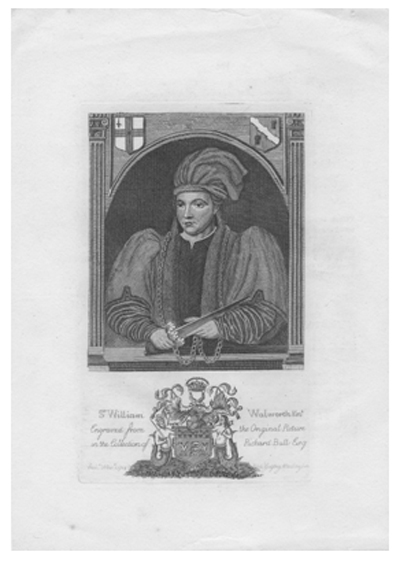 Walworth’s successors are as self-serving as Tyler’s slaughterer
Walworth’s successors are as self-serving as Tyler’s slaughterer
For the modern City makes money by investing in arms,
And getting psyched up by the profits from speculative deals
Without its ever caring about whom it harms.
The City is Britain’s answer to the cold-hearted Wall Street
(That other imperialist haven for hedge-fund traders) –
It’s a City that ensures economics is free of either morality or empathy,
Thanks to its lavish rewards for bankers and corporate raiders.
The City’s money moguls fund political parties with bribery,
Giving them access to party leaders if they swell party treasuries,
So it becomes a politician’s priority to please his financiers
And such corruption has been acceptable for centuries.
Yet while the City gambles on the price of commodities,
And while 60,000 die daily from starvation,
It’s as if the knife that killed Tyler, the people’s tribune,
Is still putting pay to human aspiration.
‘But the City of London is the goose that lays the golden egg.’
Its apologists say, to ring-fence it with superstition:
‘If you disturb it, you do so at your peril, for it’ll just fly away,
And use much needed capital to enrich another nation.’
They overlook that the goose is giving off toxic fumes,
And that it fouls its own nest in the murkiest of lairs,
Where it’s geared to privatizing public assets and hiding the profits –
The golden goose turns what’s ours into theirs.
It serves to conduct unaccountable business deals
In its elegant, privatized Georgian squares
Where, thanks to deregulation initiated by Thatcher,
Fraudsters make millions by ‘shorting shares’.
JP Morgan, the City investment bank, hires Buckingham Palace
For a dinner, hosted by the arms-dealing Duke of York;
It’s attended by the bank’s clients – ghoulish gophers such as Tony Blair –
For pork-barrel politics, with golden knives and crested forks. [33]
City banks like to devise cunning financial instruments,
‘Hedging products’ such as those called ‘Swaps’:
Sexy loans are offered with unnoticed interest increases,
Ensuring victims go bankrupt and their lives collapse
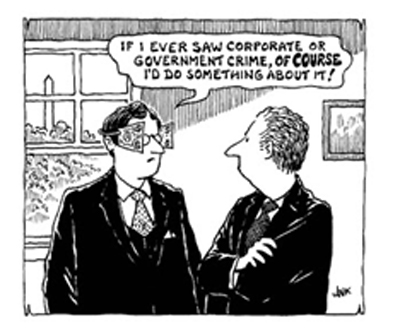 The City of London’s legions of coke-sniffing hedonists
The City of London’s legions of coke-sniffing hedonists
In their pinstripe suits, mauve shirts and Ferraris
Are protected by politicians and a compliant police force –
All of whom think City personnel are beyond query.
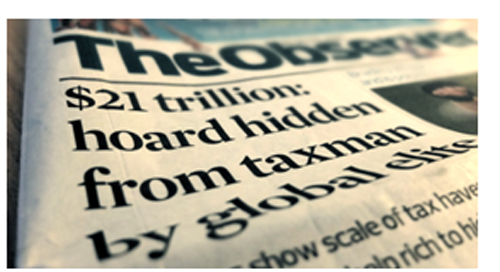
London’s square mile of thieves is really a drug den
For, according to Sigmund Freud,
Wealth’s a drug of which addicts need ever-increasing doses
To function in their dysfunctional void.
As being enslaved by such a drug widens the empathy gap,
The well-heeled and minted don’t have to imagine
How the other half lives; being convinced that their status
Allows them to overlook compassion.
One nineteenth-century reformer compared the City
To “a prehistoric monster which had mysteriously
Survived into the modern world.” [34] This Victorian monster would cry,
‘Freedom for money!’ and it makes the same ugly cry today.
Given the City’s deregulation, Wall Street used it to commit frauds
That in the US would have led to criminal conviction:
Bundles of worthless sub-prime mortgages were sold through London
Leading to a stock market crash and to mass eviction. 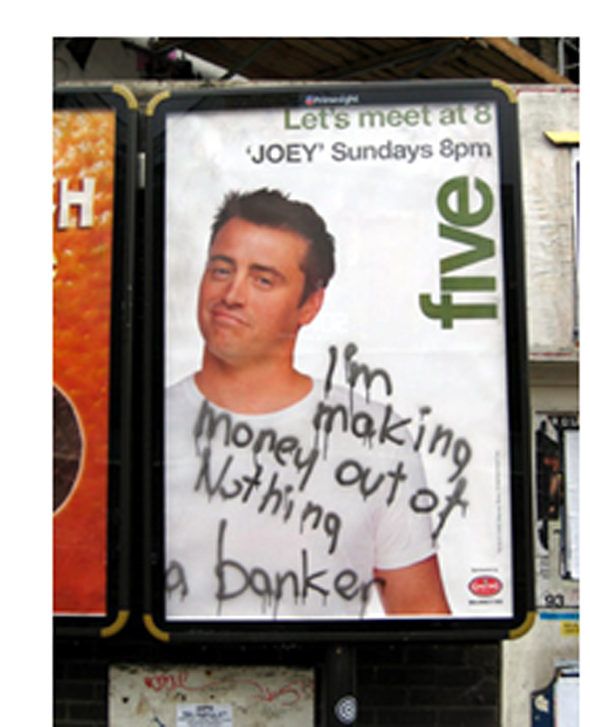
The City would concoct fraudulent financial products
Such as repackaging debt as an asset (selling air),
To be used as leverage, and then to boost confidence
While all the time there was nothing at all there. 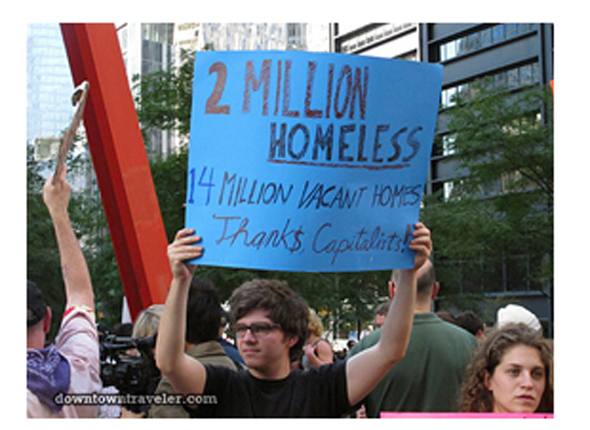
The City headhunts in Universities to find mathematicians
Who’ll cook up sophisticated algorithms,
That enable it to steal a march on market rivals by glimpsing
Fluctuating price movements ahead of time.
The City’s there to lubricate human nature at its nastiest:
Take Lord Rothermere, the proprietor of the Daily Mail.
The City helps him to hide his millions in Bermuda’s tax havens,
Being the profits from a paper that has xenophobia for sale.
A supporter of Hitler was once made an hereditary peer
Which enabled him to become a British legislator;
“Hurrah for the Blackshirts!” cried the first Lord Rothermere
And his family still hires professional race-haters.
An ex-employee summed up Rothermere’s paper perfectly:
“The ideal Daily Mail story leaves the reader
Hating somebody or something” [35] for it demonizes the weak
So that others can think themselves superior.
The City’s dagger has come to symbolize a financial fascism
Whose message is that justice is trumped by money and force
The sinister sign, all over the City of London’s square mile,
Sums up a sham democracy pierced by money’s Trojan horse.
The City’s history is of greedy men cornering the market,
Making their fortune by raising the price of food,
Then being given a title to give themselves airs and graces
So as to make them and their families feel good.
The City father of a British Prime Minister made thirty million,
A fortune which he passed down to his Tory son.
David Cameron senior set up tax havens in Geneva and Panama,
Thus warranting the perennial jibe, “Tory Scum!”
Ian Cameron was a senior director of ‘Blairmore Holdings’
Which took advantage of capital controls being lax;
The PMs’ father’s company sought “sophisticated” investors,
In other words those wishing to avoid British tax. [36]
As always City finance-capital funds the Tory Party
To ensure that it dances to the monster’s tune:
‘Don’t prosecute warmongers! There’s money in bombs!
Spare all those born with a silver spoon!’
In the City’s square mile there’s no industry, just coffee chains,
Like the upas tree nothing grows in the City’s shade.
Its dark towers are for devotees of Shakespeare’s ‘saint-seducing gold.’
They stand for humanity’s shadow side where nothing’s made.
In them lurk the gnomes of Zurich and Moloch’s high priests
Looking down upon the world that they happily milk –
Transforming London into money-laundering’s global capital;
Serving rich clients with perfect teeth and smiles of silk.
Crooked officials who loot their countries know they’ve access
To shell companies in a global financial centre,
Falling over itself to secure their wealth, and to sell them
Billion pound palaces and to be their money mentors.
According to the watchdog, Transparency International,
“The world capital of dirty money is London”
There’s even a ‘Corruption Perceptions Index’ singling out the City
As “The fruits of corruption’s number-one home.” [37]
The City’s slick number crunchers are housed in forbidding towers,
Each one built to an inhuman scale –
The City’s triumphant emblems of economic inequality,
Architecturally boasting, ‘We’re too big to fail.’
So it’s understandable when the victims of money’s violations
Sometimes rise up to give their oppressors a jolt –
For billionaire vampires who steal others’ lives are an affront,
And can even stir memories of the Peasants’ Revolt.
Wat Tyler claimed they were “zealots for truth and justice,
Not thieves and robbers” and he was right
(Although to chant, “A revel! A revel!” while ransacking Lambeth Palace
Might understandably have been regarded with delight).
But Wat Tyler and his followers were singled out for disdain
By a society poisoned by moral corrosion;
And similar attacks now on ‘benefit claimants’ and ‘the undeserving poor’
Are inviting a similar social explosion.
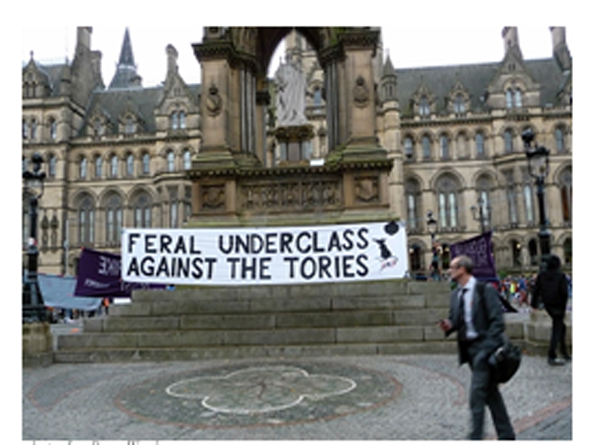
photo: Ian Bone, WordPress
The Sunday Times Rich List reveals the accumulated wealth
Of the thousand richest people in the country
Which, in the midst of a recession, totals £450 billion ¬–
Not counting what’s in tax havens, thanks to the City.
All re-invested to make more money to buy more privilege
For their children, and for their children alone;
To perpetuate the system, pickling social mobility in aspic,
And t0 ensure the old divisions are set in stone.
“Hell is a city much like London,” [38] Shelley said,
And to Cobbett it was “the great Wen”, [39]
A cancerous cyst that sucked at England’s life-blood
In a selfish merchant-oligarchs’ gambling den.
The City can’t hide that its nest egg derives from serfdom,
From indentured servitude and then from slavery.
As the first capitalist power, the City spearheaded colonial expansion
For which no profitable activity was too unsavory.
Without child labour the industrial revolution
Wouldn’t have been nearly so big a deal;
And the children in mines and in cotton mills profited
The founder of the Tory Party, Robert Peel.
The City’s heritage comes from interweaving class, money and blood;
From the low-minded connection between gold, war and gain
And, as if following the City’s mindset, the mainstream media
Still carry news of war economies, again and again.
The ten-centuries-old assets of the City are never declared
But it’s rumored to own caverns of gold bars,
And the land and securities on which its loans were once raised
Yield millions in interest to empower City czars.
The City’s ‘Cash Fund’ spends ten million a year on lobbying
And in making sure that the State is subservient –
It ensures the well heeled can come and go as they please
And that any financial regulations are compliant.
Thus corporation taxes are reduced, and there are tax breaks
Worth 500 million to City businesses –
Fixed up at great occasions in the Mansion House for power-brokers,
Lavish events called ‘banquet lobbying’ by City lobbyists.
There’s even an unelected City official who sits in Parliament
With the unsettling title of ‘The Remembrancer’.
He and his seven lawyers vet legislation to ensure it’s City-friendly
And, quite undemocratically, the City’s gopher has a seat in the Chamber.
But the Remembrancer forgets that the weight
He throws about on the City’s behalf
Derives from the darker deeds of the British Empire:
An outright worship of the Golden Calf.
 Illustration: H Meyer
Illustration: H Meyer
For the Charter Companies formed in the City
Financed the North American slave trade:
The City seized Africa, America, and India like a robber,
Looking for gold and for people to degrade.
“Why should we not form a secret society, with but one object:”
Asked Cecil Rhodes, the Empire’s tool,
“The furtherance of the British Empire and the bringing
Of the whole world under British rule?”
“Africa is still lying ready for us.
It is our duty to take it.” [40] Rhodes added,
And beginning with the Royal African Company
Every City Company obliged.
Ambrose Crowley, a City iron merchant, produced manacles
And irons for the tethering of slaves on ships.
Finance came from John Angerstein, who founded Lloyd’s of London
On the back of his Grenadian slave estates.
Ever sensitive about its reputation the City’s Corporation,
Takes £10 million a year from taxpayers to mishandle:
The sum’s called the ‘City Offset’ and it’s spent on damage limitation:
On trying to cover up all the City’s financial scandals,
Such as the Lehman Brothers collapse, or Bernie Madoff’s pyramid scheme–
A notorious fifty-billion-dollar racket –
Or AIG’s failed derivatives operation, or the Barclays’ LIBOR disaster…
But clever PR sees the City’s not held up by such adverse traffic –
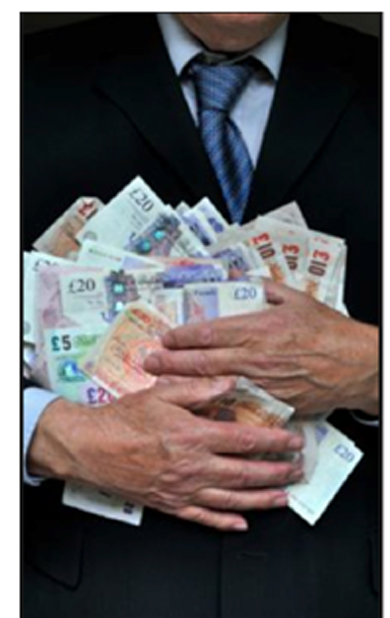
So the snorts of cocaine and spoons of caviar in ‘Mergers and Acquisitions’
Can go on oiling the cogs of pathological money machines
As the world’s precious resources continue to be swallowed up
By sweaty fingers and the City’s computer screens.
 In making sure Governments only borrow from the City
In making sure Governments only borrow from the City
The City sentences generations to debt slavery –
No differently from the Middle Ages when serfs were cheated
Of their birthright by baronial knavery.
Thanks to speculative house-buying, driven by City greed,
London becomes affordable only to the mega-rich
With the poor as an invisible service industry, or simply homeless –
There to be stepped over, or left to starve in a ditch.
The saying that beneath every fortune lies a great crime
Has to blight millionaires with an anti-social stigma:
For why’s being one different from being a child molester, or drunk driver?
These devotees of the same death spiral as Gordon Gekko, or Goldfinger.
The squeezed majority have to pay for the super-rich
And to watch the criminal wealth gap grow,
But if the lion’s share goes to those who don’t need it,
Then they’re inclined to shout, ‘Fuck it! No!’
For there’s now the widest division in human history
Between the leisurely rich and the troubled poor,
But when the City of London secretly stashes away trillions
There’s a burning temptation to hack down the door. 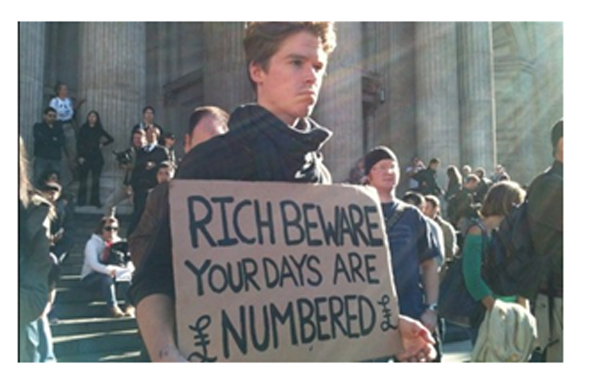
The City of London Corporation invests in arms –
In every arms company it can find:
From Lockheed Martin,
to Boeing, to Northrop Grumman, to Halliburton–
Their investments increase as they decimate mankind.
From BAE Systems,
to Raytheon, to General Dynamics,
It makes a speciality of cultivating this sickly field;
It cares nothing about bloodletting, or for body-counts,
The City’s only concern is financial yield.
And to protect it a UK Prime Minister, Tony Blair,
Urged the Serious Fraud Office not to reveal
£1bn worth of kickbacks paid by BAE Systems to Saudi royals
In the £48bn al-Yamamah arms deal. 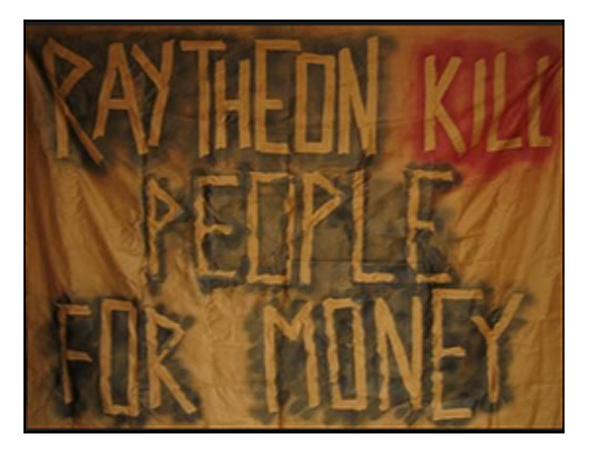
While the rest of the world was uplifted by the Arab Spring
Another Prime Minister and some City arms traders
Left for an opportunistic junket to a Middle East in turmoil,
Aiming to sell their killing machines to oil-rich dictators.
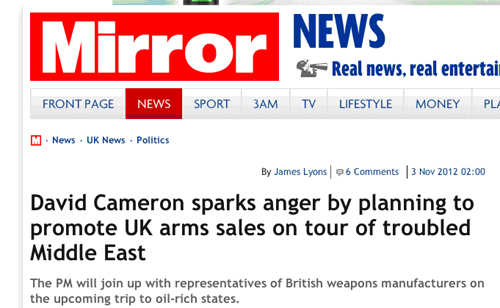
City banks lend money to UK arms manufacturers
To refine all their ‘cutting edge’ contraptions –
Thus incriminating the City in financial terrorism
where profit deafens it to the sound of explosions.
To the arms industry mass murder is its unspoken ingredient,
It’s that business’s “high-end profit stream”.
What a contrast with William Morris’ vision of utopia
In his book about John Ball’s Dream.
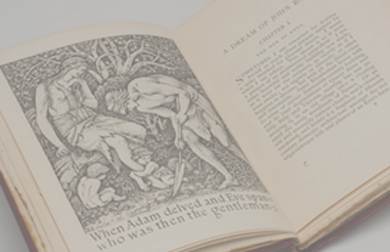
In it John Ball returns to address people in the present.
He recalls “the merry days on earth”
“Where” John Ball says, “fellowship is heaven,”
And “hell is where every man is for himself.”
In the uprising Middlesex was aflame as well as Essex and Kent;
Chiswick, and Hendon, Croydon, Clapham, and Mitcham
Kingston and Harrow, all sent their contingents to swell
The Rebel Army and cause England’s rulers alarm. [42]
Then it spread further north and became a national revolt
As the rebels put pressure on landlord after landlord
To secure individual Charters that released them from slavery –
If they refused, landlords knew they’d be put to the sword.
The Court chronicler Froissart in a timeserving observation
Wrote, “Observe how fortunately matters turned out,
For had the rebels succeeded in their intentions, they would
Have destroyed the whole nobility of England.”
But in fact they made striking inroads: no Poll Tax for seven centuries,
And their insurgency had given the lie to feudalism.
Likewise, the present City’s exposure as a terrorist bankster state
Highlights the need to skewer consumer-capitalism.
And so a new King Mob and a new righter of wrongs called ‘Anonymous’
Surfaces, in Tyler’s spirit, with cybernetic stealth –
Able to hack into corporate bank balances, however secure,
And able to redistribute the acquisition of wealth.  Photograph: Jean-Philippe Ksiazek/AFP/Getty Images
Photograph: Jean-Philippe Ksiazek/AFP/Getty Images
During the Peasants’ Revolt, Wat Tyler’s crowd chanted,
“Sceptre and crown, they shall tumble down” –
And as each action has an equal and opposite reaction
Karma can see that greed isn’t set in stone.
Predictably, a prostitute City which distorts lives with money
Has an appetite for escorts, however trafficked,
By contrast Tyler and Ball destroyed Sir William’s brothels
So the City pimp’s income from sex slaves was thwarted.
One historian commented on the rebels burning the brothels,
On their way to London Bridge to cross the Thames,
“When Walworth saw so fruitful a source of income destroyed,
His wrath must have risen higher than the flames.”
In Fagan’s account in ‘Nine Days That Shook England’
“The brothel-burning turned Walworth
Into an even more implacable enemy of the revolution” [43]
To the rebels he was just the worst man on earth.
He had feathered his nest by exploiting human weakness
And in treating women as chattels whom he locked
Up in cages with beds in the squalid ‘stews’ of Bankside
And he paid them for the privilege with the pox.
Undeterred the City erects a statue to this knife-wielding, brothel-keeper
To keep statues of colonial merchants and their military company,
Yet were it to commemorate Tyler and Ball, two militant utopians,
It might make a start in transforming its morality.
Just as there is a Wall of the Communards in Paris,
In the Pere Lachaise cemetery
Room could be made on the route of Wat Tyler’s march
For the memory of a deceived peasantry. [44]
But as if the City’s keen to hide its low intentions in plain sight
Devouring dragons guard its borders: north, south, east and west –
Forgetting that those in history who kill life-threatening beasts,
And make the powerful powerless are praised the most.
“Words are things,” Byron wrote,
“And a small drop of ink
Falling like dew upon a thought produces
That which makes thousands, perhaps millions, think.”
To Tom Paine writing in ‘The Rights of Man’, 1791
Wat Tyler was “an intrepid, disinterested man”
In other words he was incorruptible, and the Norfolk father
Of the US Constitution declared himself to be a fan.
Paine added that “all Tyler’s proposals that were made
to King Richard
Were on a more just and public ground
Than those which had been made to King John by the barons”
(A King who was notoriously unsound)
So that “If the barons,” Paine pointed out,
“Merited a monument to be erected at Runnymede,
Tyler merits one in Smithfield.” [45]
Sadly, as yet, no one’s felt the need.
But in 1794 Robert Southey, Coleridge’s writing partner,
With whom Southey planned an ideal community
Wrote a poem to mark the place in Smithfield where Tyler
Was killed for trying to widen man’s opportunity.
“This is the place where England’s injured sons
Rebelled against their sovereign for they found
His yoke was grievous. Pass not lightly on!
This is a place [that] may well invite thy mind
To serious musings. Monarchs here may learn
If they oppress their people, if they waste
Their blood, and rob from the poor labourer
His hard earn’d mite, that there may come a day
Of vengeance.”
Wat Tyler’s firebrand speeches and John Ball’s utopian dreams
Fuelled Leveller and Digger and Chartist revolutions
Which Engels, Marx’s comrade in arms, noted were about
“Overthrowing the whole English Constitution.” [46]
The Chartist movement was urged to remember Tyler:
With rousing rhymes: “Many kindred spirits
still survive, to raise for coming glory,/Till not a Briton
But will strive,/To profit by his story.” [47]
One Chartist group had a Wat Tyler Brigade
With its own song for radical lungs:
“For Tyler of old. A heart-chorus bold,
Let Labour’s children sing.” [48]
Despite his head ending up on a pole on London Bridge,
Wat Tyler’s tongue still cuts across centuries,
Inspiring captive spirits who relish his forthright appeal
For the opening up of all penitentiaries.
Tyler sacrificed his own life to free the serfs
And to give two fingers to Norman yokery;
He can still counteract reactionary historians,
Tories who glorify a mercenary tyranny.
For, as Southey wrote, “he was one gifted
With a strong energy of mind.
Quick to perceive the right, and prompt to act
When justice needed.” A zeal unconfined.
Thanks to Tyler, English laborers showed their opposition
By bravely raising their own peoples’ banners,
Knowing that by such an act they’d then be thought traitors,
But they despised a treacherous King’s manners. [49]
Thanks to the Peasants’ Revolt, a feudal absolutism
Was eroded by popular visionaries,
Who fought the totalitarian power of money
And undermined its sordid tyranny.
A financial fundamentalism insists that money measures
Every single last scrap of the life force,
While it threatens and shortens peoples’ lives, and long, long ago
Should have been stifled at source.
Clement Attlee once lamented, “over and over again we have seen
That there is in this country another power
Than that which has its seat at Westminster.” [50] By which he meant
The City dragon, looking for things to devour.
When ‘whatever makes money is good’ is a principle
Then nothing whatever can be bad:
Even if City investments risk man’s total destruction
So what, if the interest makes bankers glad?
The City’s chillingly named ‘Geiger Counter Investment Trust’
Buys and sells uranium.
Forget Chernobyl, and Fukushima – when money’s at stake
Humanity’s secondary, it’s even alien.
One corporation whom the City’s dragon protects
Bankrolls those dealing in Malaysian wood –
Those who devastate rainforests to plant palm oil,
The main ingredient of processed food.
Heart disease is accelerated, and man’s engaging cousin,
The orangutan, is driven from its habitat.
To make way for a cooking fat, ancient lands are slashed and burned,
And even breathable air is under attack.
The bank in question is HSBC, housed in the City
Amongst the forest of concrete towers –
Stuffed with money makers in their malignant pinnacles
Which unlike green trees that soar, simply lower. [51]
Inside them the dagger that killed Wat Tyler is still wielded,
But this time it’s by finance’s cold, dead hand:
Through its stocks and its shares and its dividends and its bonds,
The dagger’s plunged into the world’s green and pleasant land.
Daily the City gambles on the price of fossil fuels;
Daily it promotes their consumption;
Daily the side-effects from their incineration
Deaden the world’s seas by acidification.
“The most successful investors are still betting on fossil fuels,”
Insists a louche lout in a City wine bar,
Whose gold credit cards are backed up by sea birds in oil slick
And babies breathing exhaust fumes from his car.
The ancient Babylonians used to call gold “the shit of hell”
And the City’s filled with its embodiment: the living shits
Who inflate the cost of living, and seek a vacuous status
From brand names, smart addresses and designer glitz –
Who struttingly say, ‘I’m much too special and far too rich
To play a full part in the community.
I’ve no wish to share my wealth, thankyou very much,
And I’ve an accountant to secure my superiority.’
The City’s mindset is identical to that of Steve Wynn, casino billionaire,
“Guys like me are job creators and we don’t like having
a bulls eye painted on our backs.”
The contrast between twenty-four million going hungry per day
And Wynn’s annual income of four billion is a provocative fact,
Which leads you to think that capitalism is a license to kill by stealth
Through financial stress causing illness and suicide,
While at the same time the peace of mind of all those with wealth
Must be undisturbed and the rule of money preside.  David Cameron prepares to speak on the need for ‘permanent austerity’
David Cameron prepares to speak on the need for ‘permanent austerity’
at the Lord Mayor’s banquet. Photograph: Ray Tang/Rex Features
A multimillionaire PM sits on a golden chair to eat game
While accepting the City’s hospitality.
Gorging himself from the City’s gold cutlery he takes the microphone
To lecture the world on “permanent austerity” –
While his City’s neo-feudal fortress guards its synthetic wealth,
Its company cars and its private schools and its fraud,
And its luxury goods, and its Lear jets, and its diamonds, and its junk –
A world that worships money as its anti-social God.
Fascism is capitalism plus violence, [52] and face-lift
After face-lift from democracy’s charade
Can’t change the character of the greedy and savage beast
Whose conscience is permanently mislaid.
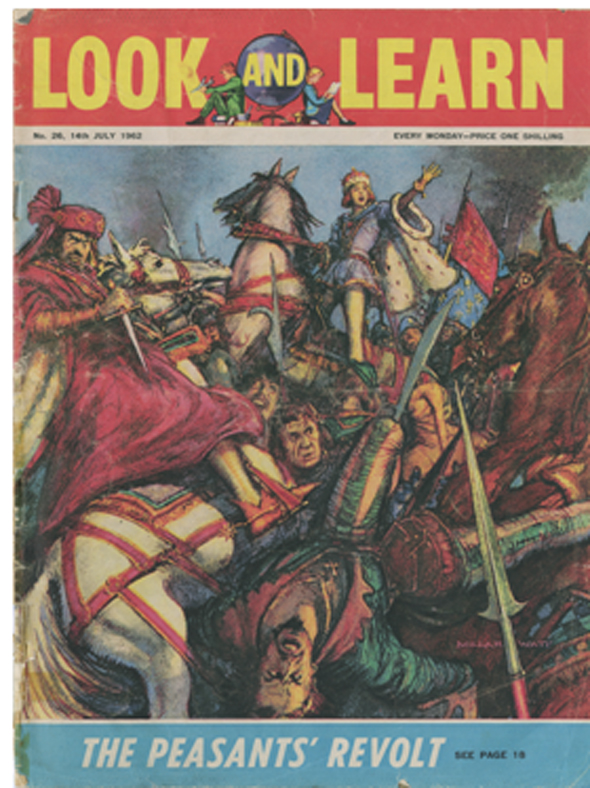
But in the Peasants’ Revolt, the despondent raised their heads
And set about devaluing the authorities’ currency:
By their ceasing to believe in the strength of their oppressors,
And with right on their side, they made history.
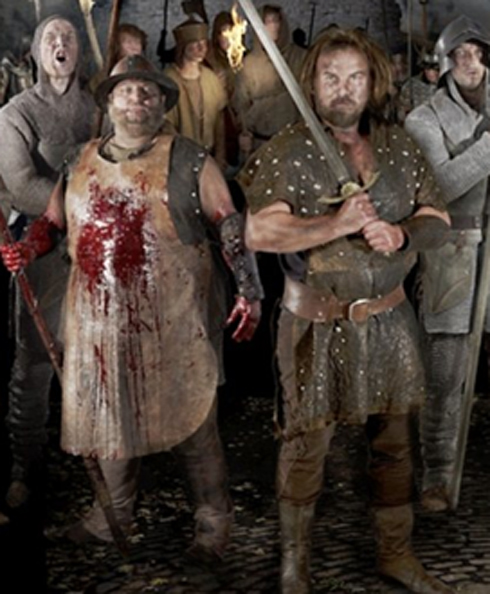
And seven hundred years later on November 5th,
Outside Parliament, banners were unfurled
All of them singling out the same stubborn divisions
And adding ‘BE AFRAID, BE VERY AFRAID’.
“GOT MONEY FOR WAR BUT CAN’T FEED THE POOR?”
“THE CORRUPT FEAR US.
THE HONEST SUPPORT US. THE HEROIC JOIN US.”
“TEN THOUSAND PEOPLE HAVE DIED BECAUSE OF THE CUTS.”
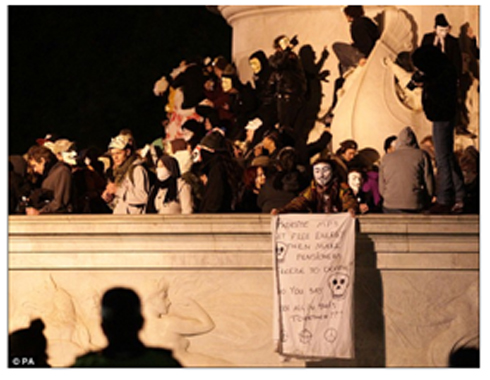
One of them reads, “PARASITE MP’s GET FREE ENERGY
THEN MAKE PENSIONERS FREEZE TO DEATH.”
The crowd moves to Trafalgar Square, then down the Mall.
Someone calls ‘Off with their heads!’ with each breath.
And then the Palace, the embodiment of the wealth gap
With its six hundred rooms is attacked;
Curtains twitch as Palace flunkeys peer out nervously,
Worried at seeing their police pushed back.
The stone-faced building is hit by Guy Fawkes Night rockets,
And as each one scores a bull’s eye the crowds cheer.
A homeless woman at the Palace gates calls out pleadingly, ‘WE’RE POOR!’
The crowds echo her, but with more defiance, ‘WE’RE POOR!’
A Stone Roses’ fan sings, “Tear me apart and boil my bones. I’ll not rest
Till they’ve lost their throne…” as a missile snuffs out a Palace light.
“My aim is true my message is clear. It’s curtains for you, my royal dears”
Then someone nearby shouts, “Heads on pikes!” “Heads on pikes!”

“Who’s Palace? Our Palace!” they shout up through gilded railings,
And ‘WHY ARE YOU WORTHLESS PARASITES SO RICH?’
Then suddenly Wat Tyler’s London comes edgily back to life,
Thanks to a Seven-Hundred-Year old Itch.
 Wat Tyler’s house, Brenchley, Kent/Real Photo Postcard, A769
Wat Tyler’s house, Brenchley, Kent/Real Photo Postcard, A769
Wat Tyler’s an English folk myth, like Robin Hood,
Except that the evidence for his existence
Is authentic and Tyler was much more political –
Wanting to change the system’s very essence.
William Blake drew Wat Tyler, and wrote on his engraving
That he’d drawn a likeness of Tyler’s spectre
In the act of striking a City Tax man, and who knows that Tyler
Won’t strike the City again from across the aether.
Wat Tyler’s “Saxon grit” in striking the royal tax gatherer
Was celebrated in a popular song. Tyler’s renown
Was spread for saying, “our life shall not be by the king’s permit.”
“By breaking a head,” ran the song, “he made a hole in the crown.”
Blake despised the State and he restored the Lord’s Prayer
With what he believed was its proper translation
(Rather than the mealy-mouthed travesty, still used in churches,
And penned by a Tory theologian, Dr. Thornton).
In tune with Tyler and Ball, Blake declared it should read:
“Give us the Bread that is our due and Right,
By taking away Money, or a Price, or Tax
Upon what is common to all in thy Kingdom.”[53]
The University of Berkeley in California
Conducted a series of tests
Showing people in expensive cars were less likely
To come to a halt for pedestrians;
And tests showed if the richer test subjects were left
With a jar of sweets for the experiment,
And if they were told they’d been reserved for children,
It was found there was no end to their arrogance –
For the richest test subjects would pilfer the most sweets
(More sweets than the subjects who were poor),
And, again, when the rich subjects played a game of chance
It was the rich ones who bumped up their scores –
For the rich feel entitled to cheat as it’s their ‘right to win’,
And when you hear them boast that ‘money talks’,
Or when you hear them insist that ‘generosity’s for idiots’,
Then you wonder if it’s not time for the pitchforks.
The Peasants’ Revolt went on to inspire
Mass uprisings all over Europe.
By putting the self-serving in its cross-hairs
It was giving the excluded hope.
The rebels came close to overthrowing the system –
Just one dagger’s thrust from victory –
But with money an illusion, and with power a deception
A revolt can still change the scenery.
“In the evening,” the divine bandit, John Ball, said,
“Men will dream of the day.”
They will dream of an egalitarian state of nature,
And of nothing stood in the way.
Heathcote Williams

——————————————————————————————————-
Author’s note: I’m grateful to Eddie Mizzi for his first telling me of the adoption of Walworth’s dagger as an heraldic motif by the City of London Corporation. (Rob Newman also mentions this in his novel The Trade Secret, and has commented, “it seems a long time to bear a grudge.”) I’m grateful to Clem Shaw who recommended H. Fagan’s informative Left Book Club history, Nine Days that Shook the World (1938). Grateful thanks too to Ciaran Walsh for drawing my attention to an omission in an early draft, and for his taking up the cudgels on the piece’s behalf by performing it at Dennis Harrison’s Albion Beatnik Bookshop in Oxford; to Dave Motion for IT first aid; to both Dave Lawton and to Martin Maw for alerting me to pictures of the PM’s City engorgement; to Ian Allison and Kieron Livingstone of Nervemeter for the image of the Golden Calf; to Graham Yates at carbon colour for his scrupulous scans, to Jonangus Mackay for some invaluable links, and to Alan Cox for his narration and video montages on You Tube: www.youtube.com/user/Babylonroyal and for drawing my attention to the title quote from Kropotkin.
The cover photograph of Walworth’s dagger, now in Fishmongers’ Hall, is courtesy of Bridgeman Art Library (BAL51327). The cover design is by Nigel Allen of carbon colour. Sine quibus non.
————————————————————————
Footnotes:
[1] H. Fagan, Nine Days that Shook England, London: Victor Gollancz, Left Book Club Editions, 1938, p. 164
[2] Alastair Dunn, The Peasants’ Revolt, Stroud, Glos: Tempus p. 194
[3] from Chapter 1, ‘Our Riches’ Peter Kropotkin, The Conquest of Bread, G. P. Putnam’s Sons, New York and London, 1906
[4] “…at the hall of the Fishmongers’ Company is preserved the veritable dagger with which, it is asserted, the deed was done [the murder of Wat Tyler at Smithfield]; and as the addition was made to the City arms about the time of this occurrence, popular fancy connected the two events, and ascribed the advent of the dagger on the shield to its use in Smithfield.”
J. Tavenor-Perry, The Arms of the City and See of London,
from Memorials of Old London, Volume I, London: Bembrose & Sons Ltd, 4, Snow Hill, E.C., 1908, p. 237
“Brave Walworth, knight, lord mayor, that slew/ Rebellious Tyler in his alarmes; /The king,therefore, did give him in lieu/The dagger to the city armes.” — Fourth year of Richard II. (1381), Fishmongers’ Hall.
[5] cf. A.L.Morton, A People’s History of England, London: Victor Gollancz, 1938, pp. 118-124
[6] Statute of 1377
“The red knife on the City of London’s crest was in honour of the dagger with which the Mayor of London, Sir William Walworth, murdered Peasants’ Leader Wat Tyler during a parlay under a flag of truce […] The red knife gave the City of London’s short answer to the equalizing instinct in the hearts of common people.” Robert Newman, The Trade Secret, London: Cargo Publishing, 2013, p. 282
[7] H.Fagan., op.cit. p. 138, citing Stowe, Chronicles
[8] Robert Collyer, ‘Saxon Grit’ from The Labour Prophet, 1 March 1892; cited in Antony Taylor, London’s Burning: Pulp Fiction, the Politics of Terrorism and the Destruction of the Capital in British Popular Culture, 1840-2005, London: Bloomsbury, 2012, p. 20,
[9] G.R. Kesteven, Studies in English History: The Peasants’ Revolt, London: Chatto and Windus, 1965, p. 13
[10] from the Chronicon Angliae n: Chatto and Windus, 1965, p. 13
[11] Jack Putterill, Vicar of Thaxted and Chairman of Thaxted Branch of the National Union of Agricultural Workers. ‘John Ball and the Dragon,’ Linton, Cambridge, 1976, p.4
[12] John Ball, on April 26th., 1381
[13] cited in Brian Bird, op.cit. p.140
[14] The Statute reads ‘for his falsity (fauxine) he shall be burned in the forehead with a brand made of iron and formed into the shape of the letter ‘F’ as a sign of Falsity.’ (34.Edw.III. c.10 SR, 367) cited in Kellie Robertson, ‘Branding and Labor Regulations,’ in The Middle Ages at Work, New York: Palgrave Macmillan, 2004 pp. 133-154
[15] British Library, Arundel MS 350, fol. 17v. cited in Sylvia Frederico, ‘The Imaginary Society: Women in 1381’, Journal of British Studies, (40) (2001, 159-183
/span>New York: Palgrave Macmillan, 2004 pp. 133-154
[16] Frank McLynn, The Road Not Taken: How Britain Narrowly Missed a Revolution, 1381-1926, London: The Bodley Head, 2012, p. 22-23
[17] In court documents she was described as “chief perpetrator and leader of rebellious evildoers from Kent”.
guage: EN-US;mso-bidi-language:AR-SA’> John Ball, on April 26th., 1381
[18] Sylvia Frederico, ‘The Imaginary Society: Women in 1381’,
Journal of British Studies, (40) (2001, 159-183
[19] Anonimalle Chronicle, written by an anonymous monk of St.Mary’s York and translated by Charles Oman for his book, Great Revolt of 1381, Oxford: Clarendon Press
[20] Froissart, cited by H.Fagan, op.cit. p. 160
[21] Gower, Vox Clamantis,
[22] Sir J Froissart, The Chronicles of England, France and Spain, p.207, cited in H.Fagan, Nine Days That Shook England: an Account of the English People’s Uprising, 1381, Victor Gollancz, Left Book Club, 1938, p.111
[23] As first reported by Thomas Walsingham, Ball’s celebrated lines ran, “Whan Adam dalf, and Eve span, wo was thane a gentleman?” Thomas Walsingham, Historia Anglicana, ed. Henry Thomas Riley, London: Rolls Series, 1863, 1, p. 460; translated by Dobson, Peasants’ Revolt, p. 173.
[24] Fagan, op cit, p. 226
[25] From Anonimalle Chronicle in Charles Oman, The Great Revolt of 1381, Oxford, 1906, pp 193 to 205
n, The Trade Secret, London: Cargo Publishing, 2013, p. 282
[26] “Upon Walworth, Lord Mayor of London, plutocrat, brothel-keeper, and one of the most powerful members of the Fishmongers’ Guild, devolved the task of defending the city.” H.Fagan, op.cit. p. 155
“The rebels were welcomed into Southwark with open arms and ‘that same day being Corpus Christi in the morning these comons (sic) of Kent despoiled a house [a brothel] near London Bridge which was in the hands of Froes of Flanders who farmed out the sayd house from the Mayor of London’ […] Later when Walworth stabbed Wat Tyler to death, he surely had in mind less his loyalty to the King than that Tyler had burnt down his whorehouses and released the whores from bondage […] The Rose was one of Sir William Walworth’s brothels that Wat Tyler had destroyed in 1381.” Calendar of Close Rolls, 14 Richard II (1390), p. 280, 20 May 1389, cited in E.J.Burford, Bawds and Lodgings: A History of the London Bankside Brothels c.100-1675, London: Peter Owen, 1976, p. 77-79
[27] Joseph Clayton, Leaders of the People: Studies in Democratic History, London: Martin Secker, 1915
[28] ‘Continuation of the Eulogium’, cited in G. Kriehn, ‘Studies in the sources of the social revolt – 1381’ American Historical Review, January 1902, p. 473
[29] Royal Commission issued after Smithfield; cited in Dan Jones, Summer of Blood: The Peasants’ Revolt of 1381, London: HarperPress, p.159
[30] Thomas Walsingham, Chronicles, vol. II. p. 40
[31] Lyrics: Sydney Carter, from ‘Lovely in the Dances: Songs of Sydney Carter’, Osmosys Records, 1977 January 1902, p. 473
[32] The inscription on his tomb reads: “Hereunder lyeth a man of Fame, / William Walworth called by name; With courage stout, and manly might / Slew Wat Tyier, in King Richard’s sight.”
[33] Robert Mendick, Chief reporter, ‘Buckingham Palace ‘hired out’ for bank dinner’, Daily Telegraph, 24 Nov 2013
[34] Unattributed; quoted in Nicholas Shaxson, ‘The tax haven in the heart of Britain,’ London: New Statesman, 24, February 2011
[35] From a question (Q157) put to the editor of the Daily Mail by the Chairman of the Select Committee on Public Administration, 25 March 2004
[36] James Kirkup, Deputy Political Editor, “David Cameron’s inherited family wealth ‘based in foreign tax havens’” London: Daily Telegraph, 21 Apr 2012;
Ed Howker and Shiv Malik, ‘Cameron family fortune made in tax havens; Revealed: David Cameron’s father built up legal offshore funds in Panama and Geneva’ London: The Guardian, 20 April 2012
[37] Sam Alexandroni, ‘London tops the poll: Observations on corruption’, London: New Statesman, 4 October 2007
[38] P.B.Shelley, ‘Peter Bell the Third,’ written 1819, published 1839
[39] William Cobbett, Rural Rides, 1830
[40] Cecil Rhodes’ “Confession of Faith”, 1877; and extract from a draft of his first will stating his objectives in establishing the Rhodes scholarships.
[41] Nick Mathiason and Melanie Newman, ‘Streets paved with gold: The council that works for banks’, The Bureau of Investigative Journalism, July 9, 2012
[42] H.Fagan, p.220
[43] Fagan, op.cit. p. 170
[44] This point was made by Mark Starr, WEA and Labour Colleges tutor writing in Lansbury’s Labour Weekly, 5, Sept. 1925,p.5; cited in Antony Taylor, op. cit. p.33
[45] Thomas Paine, The Rights of Man (1915 edn) ii, pp 236-7
[46] Friedrich Engels, Condition of the Working Class in England, 1845
[47] C.Cole, ‘The Spirit of Wat Tyler’, Northern Star, 16 September, 1848, p. 3; cited in Antony Taylor, op.cit., p. 36
[48] Brian Bird, Rebel before his time: A Study of John Ball and the English Peasants’ Revolt, Worthing: Churchman Publishing, 1987, p.135
[49] Paul Strohm, Hochon’s Arrow: The Social Imagination of Fourteenth Century Texts, Princeton: Princeton University Press, 1992, p. 107
[50] Nicholas Shaxson, The tax haven in the heart of Britain’, London: New Statesman, 24 Feb.2011
Subscribe now
[51] Alex Spence, HSBC ‘issued loans to illegal loggers,’ London: The Times, November 3 2012
[52] Upton Sinclair
[53] William Blake, Complete Writings, ed. Sir Geoffrey Keynes, London, 1966

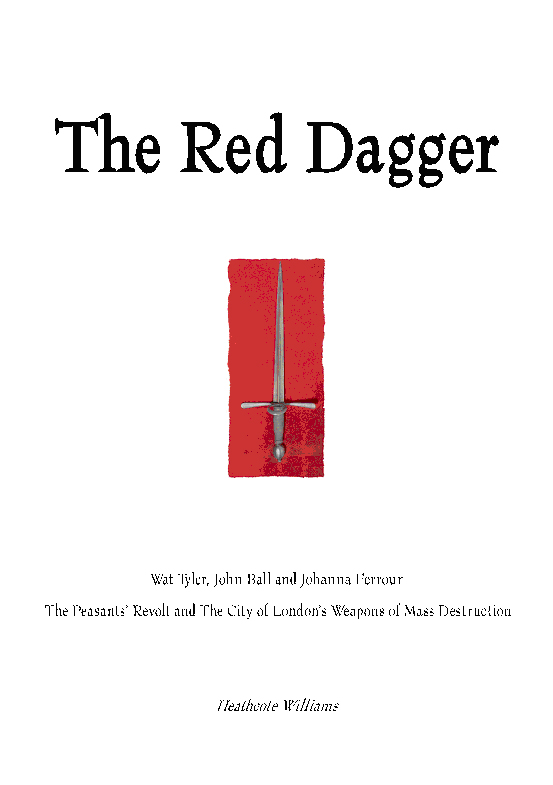
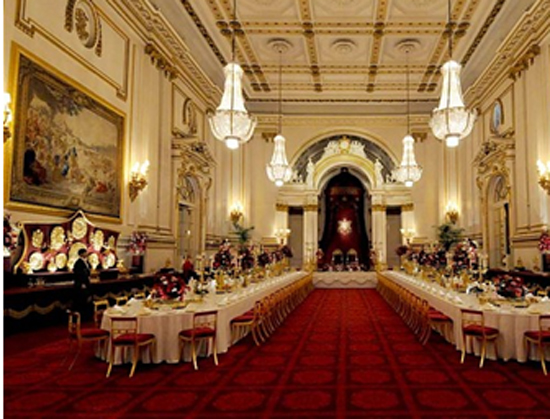
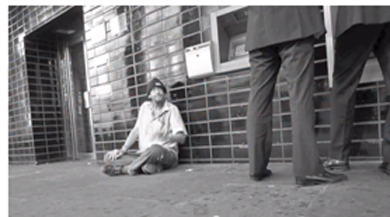

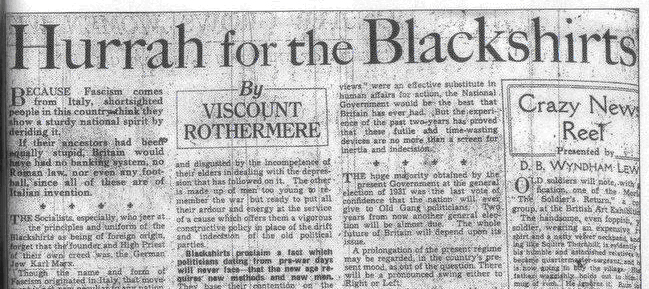
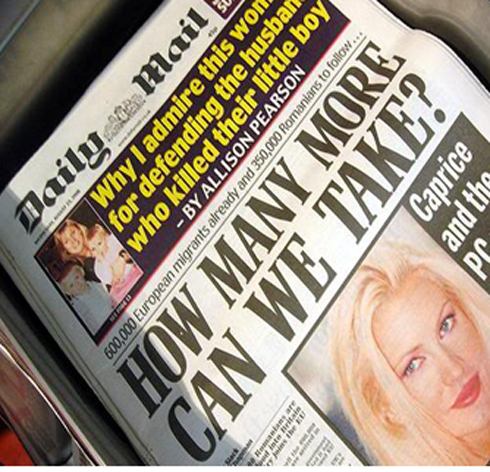
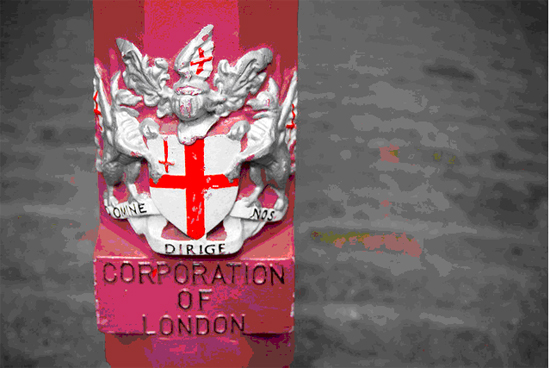
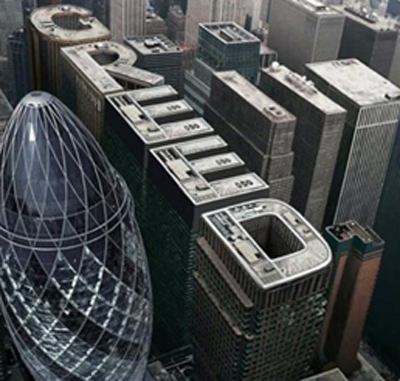

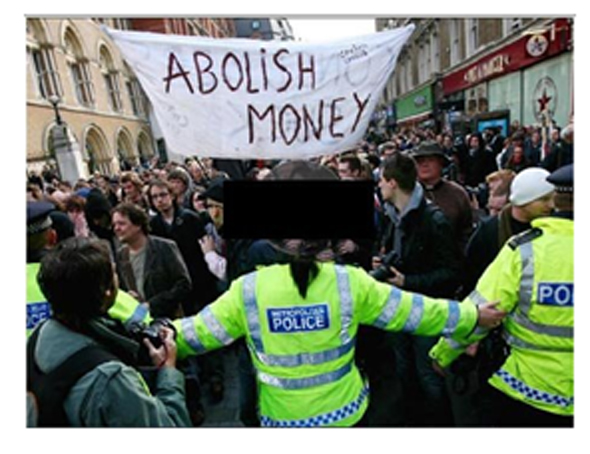
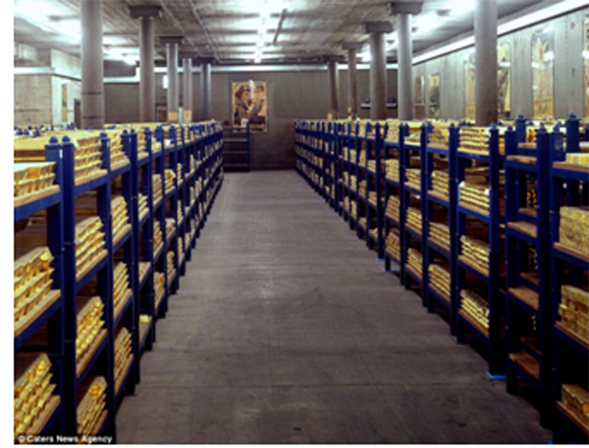




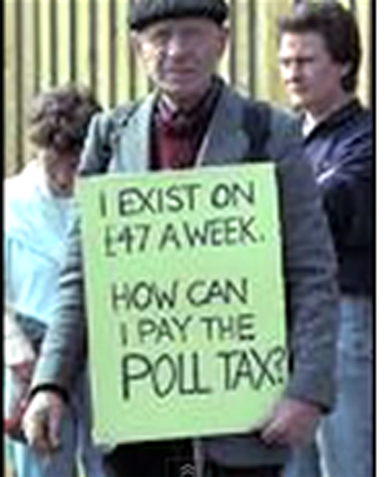
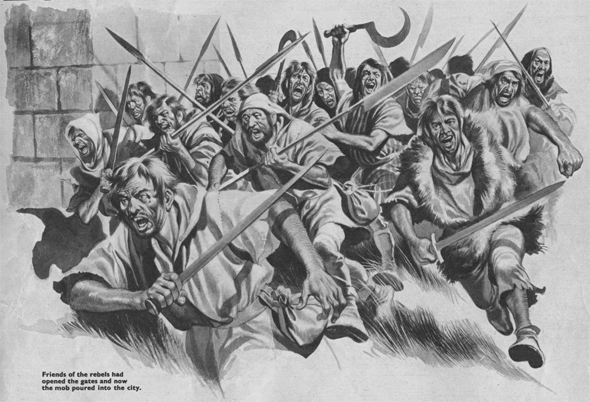
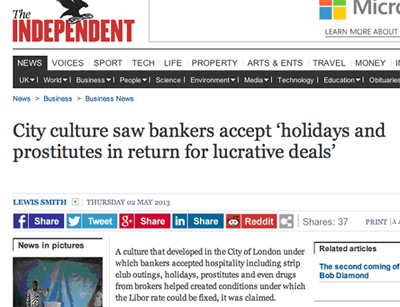
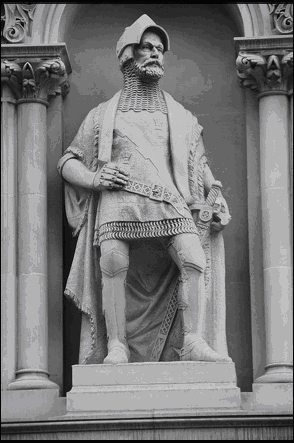
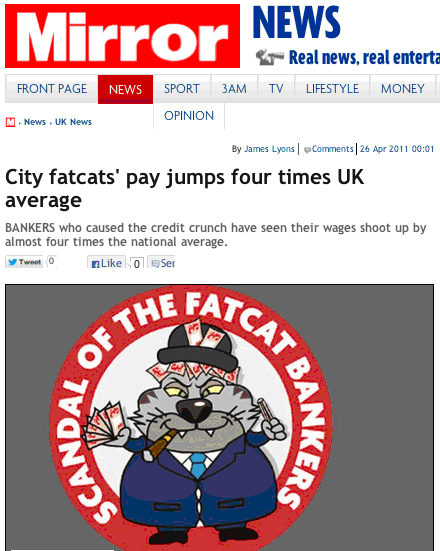
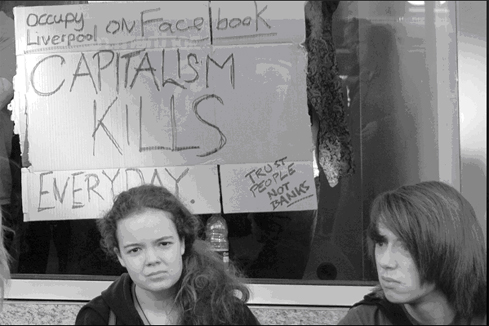
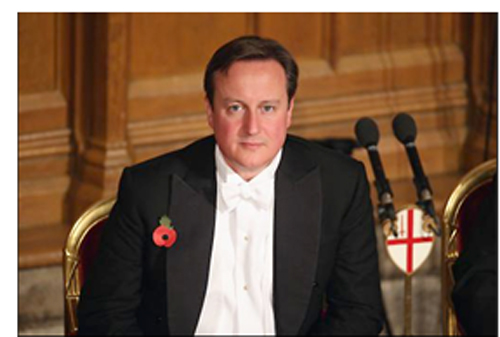
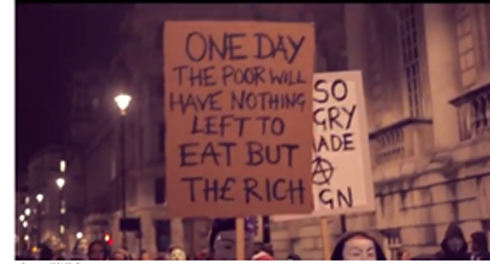
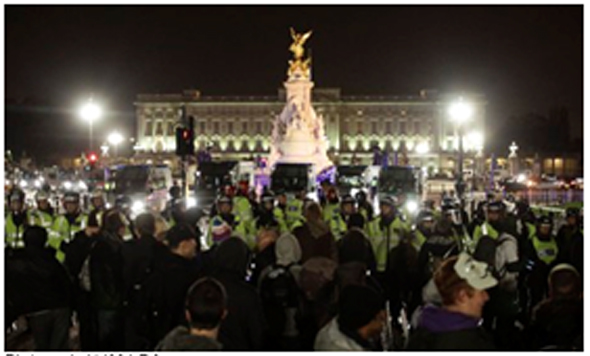
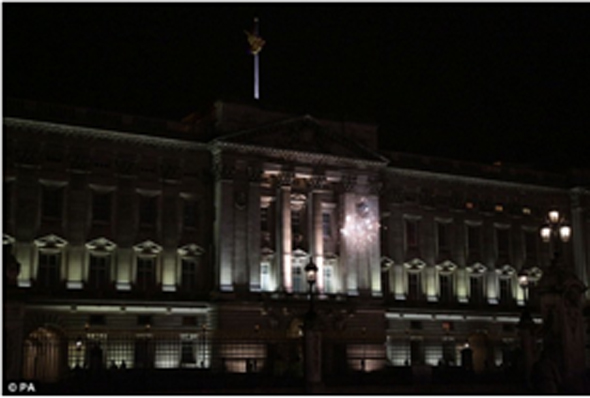
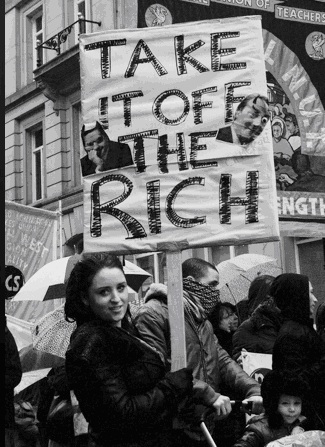

[…] ← Friendship The Red Dagger Part Two → […]
Pingback by The Red Dagger Part One | IT on 20 December, 2013 at 11:51 amHi! Do you use Twitter? I’d like to follow you if that would be okay.
Comment by comments on 2 August, 2014 at 8:18 amI’m absolutely enjoying your blog and look forward to new posts.
Hi, thanks for your comments! You can follow IT on Twitter at https://twitter.com/intltimes and on facebook http://www.facebook.com/intltimes
Comment by Editor on 2 August, 2014 at 3:09 pmPretty! This has been a really wonderful article.
Comment by (source) on 4 February, 2016 at 4:18 amThank you for providing this information.